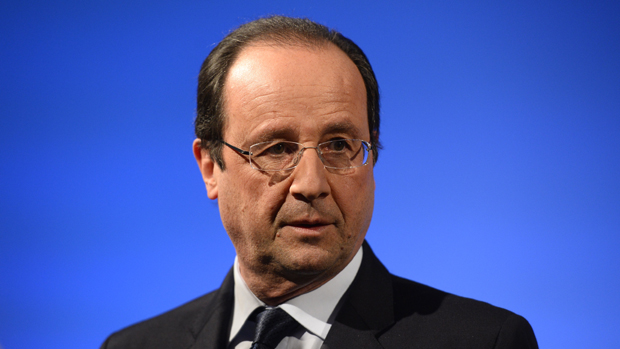Hollande calls for tougher race hate laws
French president urges 'faster, more effective sanctions' for racial crimes in the wake of kosher supermarket siege

A free daily email with the biggest news stories of the day – and the best features from TheWeek.com
You are now subscribed
Your newsletter sign-up was successful
Francois Hollande has called for tougher laws governing race hate, homophobic or religion-based crimes.
The French president laid out his proposals at a Jewish group's dinner in Paris, during which he reassured the country's Jewish community that they were both welcome and safe in France.
He said that he wanted "faster, more effective sanctions" against race hate during the speech, which came just over a month after 17 people were killed in joint attacks at the offices of the satirical magazine Charlie Hebdo and at a kosher supermarket.
The Week
Escape your echo chamber. Get the facts behind the news, plus analysis from multiple perspectives.

Sign up for The Week's Free Newsletters
From our morning news briefing to a weekly Good News Newsletter, get the best of The Week delivered directly to your inbox.
From our morning news briefing to a weekly Good News Newsletter, get the best of The Week delivered directly to your inbox.
His reassurances come as part of a concerted push by the French government to extend support to the country's Jewish community.
In the wake of the supermarket siege, Israel's prime minister Benjamin Netanyahu called for Jews to return "home" to the country due to the rise of anti-Semitism in Europe. The French prime minister Manuel Valls reacted swiftly to the remarks with a statement to French Jews that "France is wounded with you and France does not want you to leave".
More than 100 Jewish graves were desecrated in eastern France earlier this month, the BBC reports. There has also been a rise in Islamophobic incidents following the attack on Charlie Hebdo's offices.
President Hollande's remarks were overshadowed by a row that erupted between French Jewish and Muslim community leaders, after the leader of the French Jewish community accused young Muslims of being responsible for "all violence today”, Reuters reports.
A free daily email with the biggest news stories of the day – and the best features from TheWeek.com
The remarks prompted a leading Muslim group to boycott the annual dinner, which typically draws together leaders from all the major religions as well as prominent politicians.
On Monday night, meanwhile, French authorities seized the documents of six nationals who were allegedly planning to travel to Syria to join jihadists, the BBC reports.
Bernard Cazeneuve, interior minister, said the men wanted to join the Islamic State militant group, according to information from intelligence services.